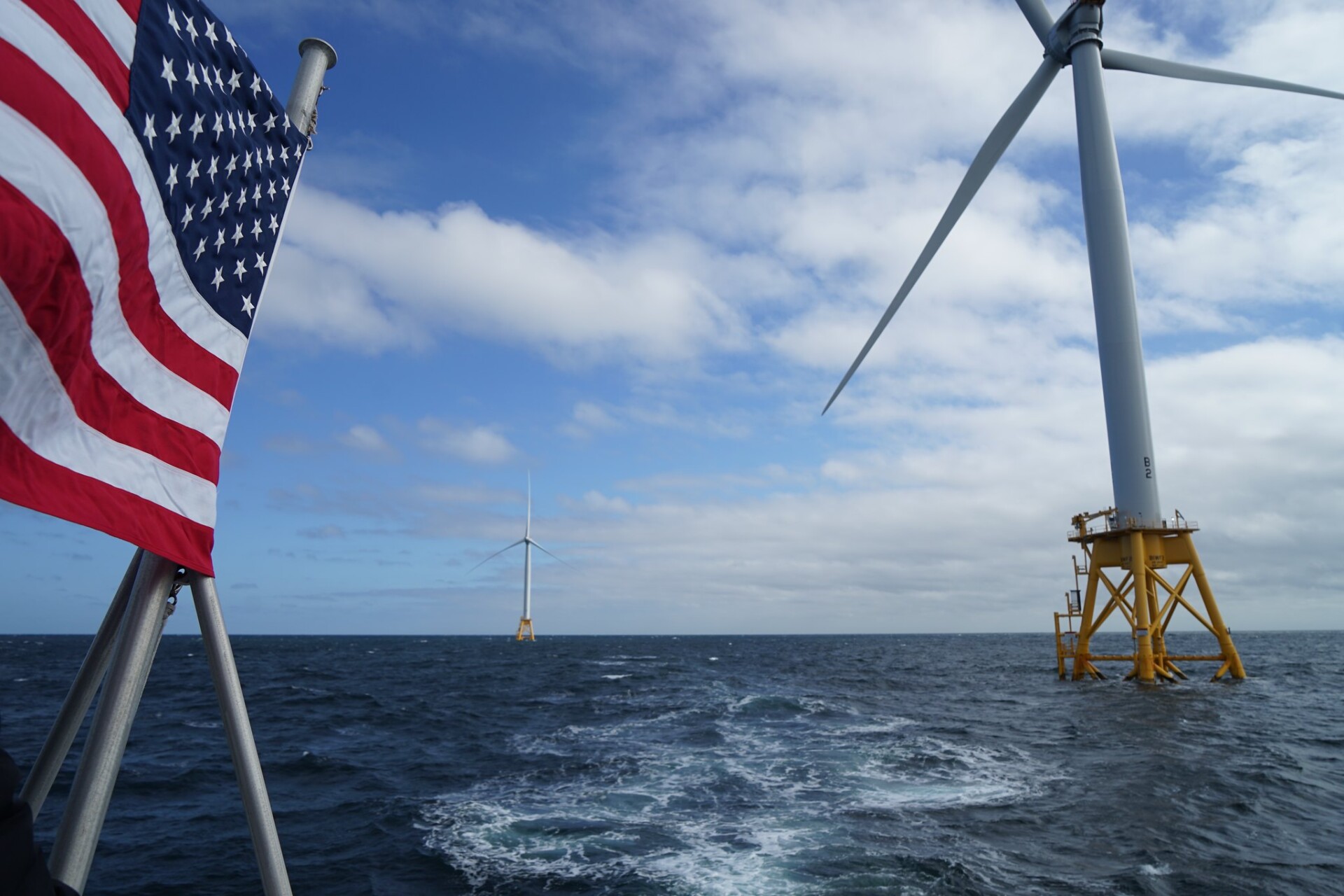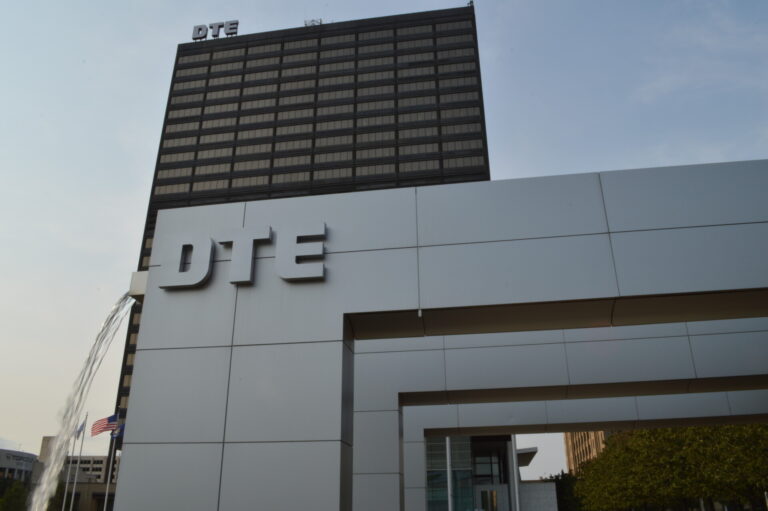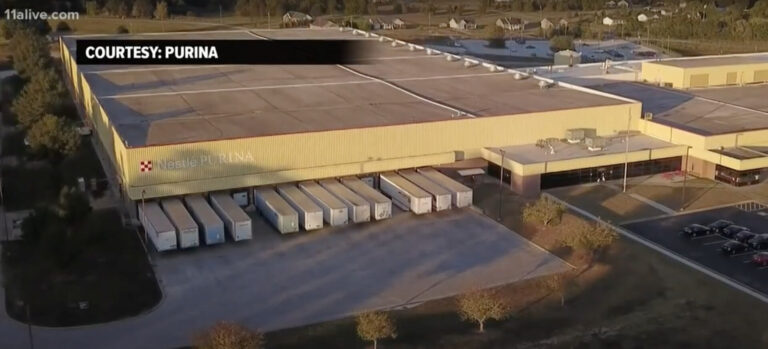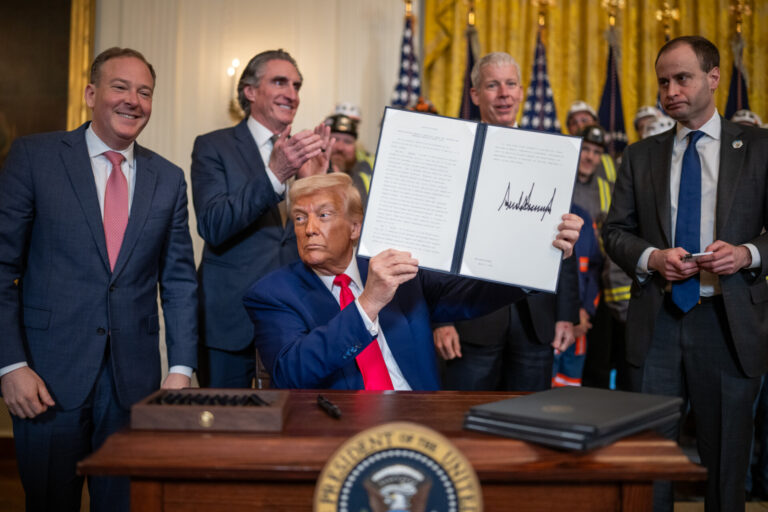State Policy Network: Political attacks on wind and solar power

State Policy Network: Political attacks on wind and solar power
The State Policy Network (SPN) is the national organization at the center of a 50-state network of think tank affiliates that is at the forefront of disinformation campaigns against wind and solar power, and is funded by right-wing donors and fossil fuel interests.
SPN’s network also includes nationally oriented partner groups, such as the Donald Trump-aligned America First Policy Institute and multiple organizations like Americans for Prosperity that are backed by Charles Koch. Koch is the billionaire CEO and chairman of Koch Industries, which operates in multiple sectors of the fossil fuel industry.
SPN’s priorities include working with state lawmakers to prevent states from adopting renewable energy
The network’s stated priorities for 2024 include working with state lawmakers to “prevent states from adopting unreliable, intermittent sources that make the grid less stable and increase costs for Americans,” SPN said on its website.
On the same webpage, SPN blamed states that are transitioning to renewable energy sources like wind and solar power for “an unreliable grid and soaring costs.”
In reality, methane gas failures have been primarily to blame for major blackouts during extreme weather events in recent years. Higher fuel costs for power plants that burn coal, gas and petroleum have driven increases in electricity prices, according to the Energy Information Administration.
SPN’s Energy Policy Work Group is led by a political consultant who previously worked for a coal industry-backed SPN group in Colorado
In 2023, SPN announced Amy Oliver Cooke as its new Visiting Energy Policy Fellow and said Cooke would oversee the network’s Energy Policy Working Group in May of 2023. Earlier that year, Cooke founded a new political consulting firm called East x West Strategies.
“If clean is what you want, there’s a way to do it, but it’s not wind and solar,” Cooke said in a Q&A that accompanied SPN’s announcement. “That would be a disaster, economically and environmentally.”
Cooke described clean energy as including coal, methane gas, and nuclear power during the same interview.
She also pointed to a coordinated campaign SPN launched in 2014 to kill the EPA’s Clean Power Plan as an example of one of the Energy Policy Working Group’s successful operations. The Clean Power Plan sought to establish the EPA’s first national limits on greenhouse gas emissions from power plants, but ultimately was stalled in court by lawsuits backed by fossil fuel and utility interests, and never implemented.
Cooke retired as CEO of the John Locke Foundation shortly before SPN’s announcement. The John Locke Foundation is a North Carolina-based SPN group that has often attacked renewable energy.
Before that, Cooke spent eight years as Executive Vice President of the Independence Institute, another SPN group based in Colorado, and was also Director of that group’s Energy and Environmental Policy Center from 2004 to 2020.
In 2017, Cooke founded the Coalition of Ratepayers, which along with the Independence Institute fought to block the closure of the Comanche coal plant in Colorado by Xcel. Documents obtained via public records requests revealed that the Energy Policy Network, an organization funded by Wyoming coal producers like Peabody Energy and Cloud Peak Energy, described the Coalition of Ratepayers as “our ratepayer coalition” in internal communications.
The coal-backed Energy Policy Network paid $115,000 to the Independence Institute between 2017 and 2018. Peabody Energy disclosed in a 2016 bankruptcy case filing that it paid $15,000 to the Independence Institute in 2015.
Peabody Energy also disclosed in its bankruptcy case that it had paid $46,000 to SPN from 2014 through 2015.
Annual meetings sponsored by a fossil fuel industry group and the Koch political network
The agenda for SPN’s 2023 annual meeting in Chicago featured the return of an annual pre-conference energy summit, “Forests, Fuels, and Freedom,” sponsored by the Koch-backed Mackinac Center for Public Policy, the SPN think tank in Michigan.
“Our opening session will discuss how net net-zero policies will cause electricity prices to skyrocket, heighten the likelihood of rolling blackouts, and increase the risk of electrical grid collapse,” a description of the pre-conference event said.
Another pre-conference session featured media experts who would show “how think tanks can build their own free–market focused news source.”
The main event included the presentation of SPN’s Bob Williams Award for Outstanding Policy Achievement. Nominees for “Best Issue Campaign” included a multi-year campaign against offshore wind power led by the Caesar Rodney Institute, and in which multiple SPN affiliates located on the East Coast and on the Great Lakes engaged.
Sponsors of SPN’s annual meeting included the American Fuel & Petrochemical Manufacturers, as well as multiple groups backed by Charles Koch, such as Stand Together Trust and Americans for Prosperity.
The Caesar Rodney Institute’s “Save Our Beach View” anti-offshore wind campaign was also a finalist for SPN’s Communications Excellence Award presented at the group’s 2020 annual meeting. SPN published a case study celebrating that campaign in 2021.
The Center for Media & Democracy obtained an attendees list from SPN’s 2019 annual meeting that included representatives from AFPM, Liberty Oilfield Services, Marathon Petroleum, and multiple Koch network organizations, as well as the utility company Southern Company.
AFPM was represented at the 2019 annual meeting by John Eick, the organization’s Manager of State and Local Outreach. Eick was also a listed speaker for a roundtable attacking state clean energy and climate change policies. Eick previously helmed the American Legislative Exchange Council’s Energy, Environment, and Agriculture Task Force. ALEC is an SPN partner group and the task force Eick led is a frequent source of “model” legislation that targets state clean energy and climate change policies and is utilized in SPN campaigns.
Misleading reports involved in campaigns to repeal state renewable energy standards and the Regional Greenhouse Gas Initiative
Starting in the late 2000s, a number of SPN groups partnered with the Massachusetts-based Beacon Hill Institute on a series of misleading reports that overstated the cost of renewable energy standards in place in multiple states. The reports became part of a national campaign by ALEC and other groups backed by the fossil fuel industry to repeal these standards, which require electric utilities to increase the portion of their power that comes from clean sources like wind and solar power over time. The repeal campaign was a failure, as evidenced by the growing number of states that adopted stronger 100% clean energy targets in recent years.
In 2013, a program coordinator for SPN sent the conservative Searle Foundation a compilation of grant proposals for some forty SPN groups in thirty-four states. Among them was a $38,825 grant proposal by the Beacon Hill Institute, which was affiliated with Suffolk University at the time, to study the economic effects of the Regional Greenhouse Gas Emissions.
“Earned media and legislative efforts to repeal or diminish the RGGI will be determinants of success,” the Beacon Hill Institute proposal said.
Suffolk University later determined the grant proposal was inconsistent with the school’s academic mission, and that the Beacon Hill Institute did not follow the university’s rules for funding research. The Beacon Hill Institute later cut ties with Suffolk, and said it could not raise enough money while following the university’s standards.
Leadership and funding
A bio of SPN President Tracie Sharp found on the group’s website describes how the number of SPN-affiliated think tanks grew between 1999 and 2021, as their funding increased by more than twelve-fold:
Under Tracie’s leadership, State Policy Network has grown from 36 think tanks in 34 states with combined revenues of about $15 million in 1999. Today SPN serves a collaborative Network of over 150 think tank members, including 64 independent, state-focused think tanks in 50 states who employ over 1,200 staff, with combined revenues exceeding $188 million. During that time SPN’s own revenues have grown from just under $200,000 in 1999 to over $24 million in 2021.
SPN’s reported annual revenue of $21.1 million for 2022 on its IRS Form 990.
SPN states on its website that “donations will in no way dictate our message or mission.”
According to a 2013 report from the New Yorker, Sharp’s remarks at SPN’s annual meeting that year contradict that assertion of independence from donors.
During the meeting, Sharp also acknowledged privately to the members that the organization’s often anonymous donors frequently shape the agenda. “The grants are driven by donor intent,” she told the gathered think-tank heads. She added that, often, “the donors have a very specific idea of what they want to happen.” She said that the donors also sometimes determined in which states their money would be spent.
SPN’s board of directors includes executives from some of the network’s top sponsors and donors, including:
- Lawson Bader: President and CEO of Donors Trust, which contributed more than $8.5 million to SPN in 2022 and over $9 million in 2021.
- Adam Meyerson: Vice President for Stand Together, the self-described “backbone” of the Koch network, which through the Stand Together Trust contributed more than $5 million to SPN affiliated think tanks and millions more to SPN partner organizations in 2022, in addition to sponsoring SPN meetings.
- Thomas L. Wilcox: SPN’s treasurer and a director for the Roe Foundation, which contributed $4 million to SPN in 2022 and $3.7 million in 2021 and was founded by SPN’s founding chairman Thomas Roe, now deceased.
SPN describes itself and its affiliated think tanks as nonpartisan. Donors Trust, one of SPN’s top funders, has taken money from groups associated with top Republican officials. In 2021, Donors Trust received $950,000 from State Solutions Inc., a 501(c)(4) nonprofit organization affiliated with the Republican Governors Association. America First Works Inc., a 501(c)(4) aligned with Donald Trump, paid nearly $4.8 million to SPN in 2020.
The 85 Fund that’s part of a network of groups connected to Leonard Leo, the political consultant who’s been the money man for the right’s efforts to take over the nation’s courts, paid $50,000 to SPN in 2022. More significantly, the 85 Fund contributed $92 million to Donors Trust, which the Center for Media & Democracy calculates gave $19.3 million to SPN and affiliated think tanks in that year.
The Mercer Family Foundation, a major source of funding for anti-climate science and cleantech groups, gave $30 million to Donors Trust in 2022.
The Searle Freedom Trust, another significant source of funding for groups that spread disinformation about climate science, contributed $1.3 million to SPN in 2022.
The Walton Family Foundation donated $1.2 million to SPN in 2022, and reported the money was specifically to “help Execute an education policy program.”
Featured image credit: Val Stori, Clean Energy Group.



